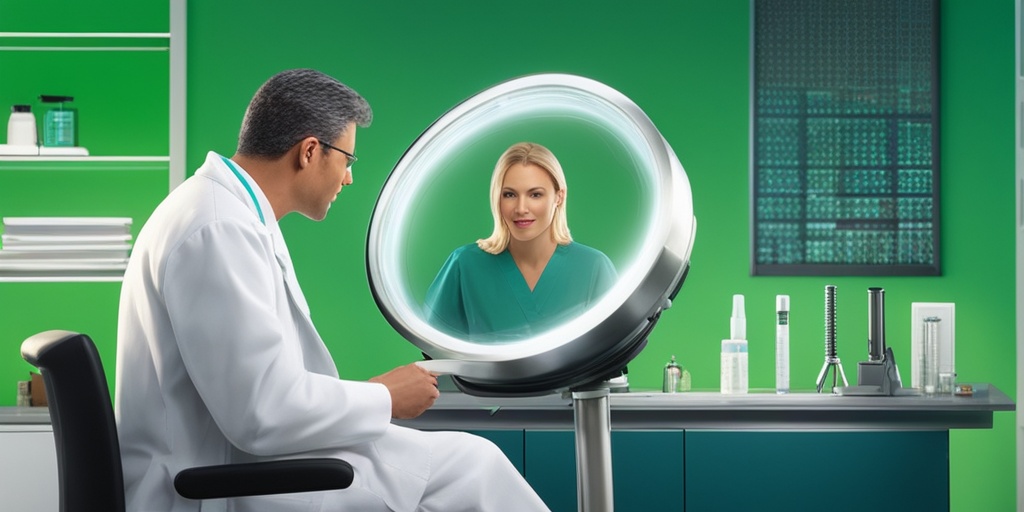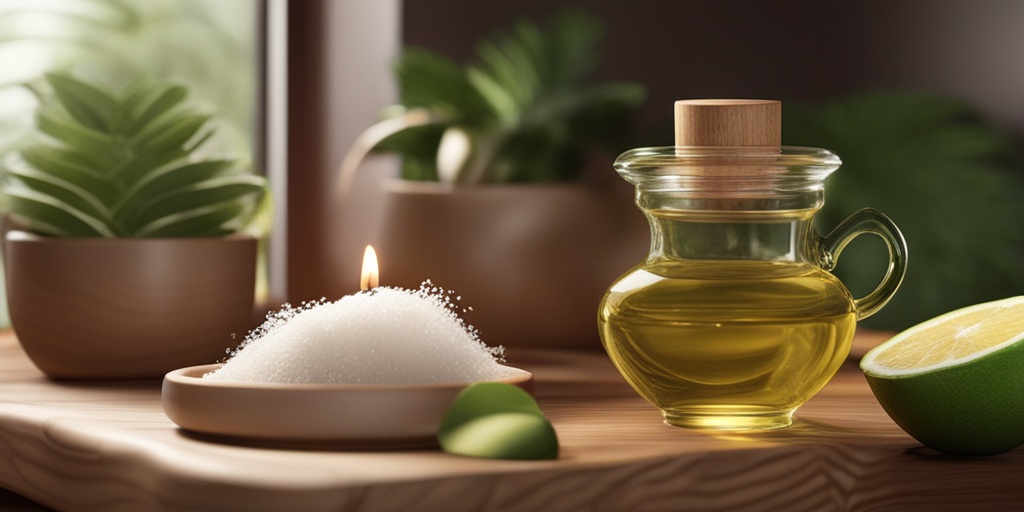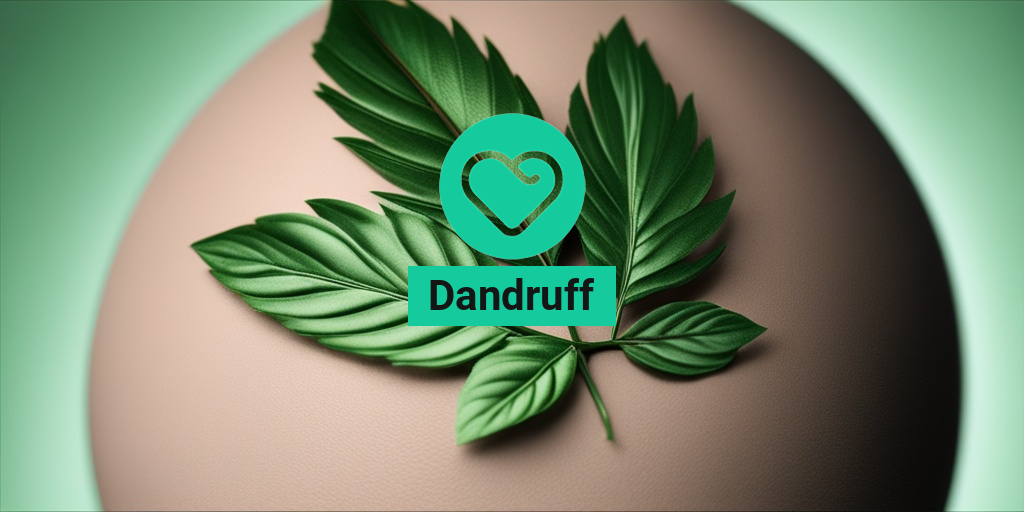What Is Dandruff?
Dandruff is a common skin condition that affects millions of people worldwide. It’s characterized by flakes of dead skin that fall from the scalp, often accompanied by itchiness and redness. But what exactly is dandruff, and why does it happen?
The Science Behind Dandruff
Dandruff is a type of skin condition known as seborrheic dermatitis. It occurs when the scalp produces too much oil, leading to a buildup of dead skin cells. These cells then flake off, causing the characteristic white or yellowish scales associated with dandruff. The exact cause of dandruff is still unknown, but it’s thought to be linked to a combination of genetic, hormonal, and environmental factors.
Dandruff vs. Dry Scalp: What’s the Difference?
It’s easy to confuse dandruff with a dry scalp, but they’re not the same thing. A dry scalp is simply a scalp that lacks moisture, often due to over-washing or using harsh hair products. Dandruff, on the other hand, is a specific skin condition that involves the buildup of dead skin cells. While the two conditions can coexist, they require different treatments.
Dandruff Symptoms
So, how do you know if you have dandruff? Here are some common symptoms to look out for:
Visible Flakes
The most obvious symptom of dandruff is the presence of flakes on your scalp, hair, or clothing. These flakes can be white, yellow, or even brown, and they may be accompanied by an itchy or scaly sensation.
Itching and Scratching
Dandruff can cause intense itching, which can lead to scratching and further irritation. This can create a vicious cycle, as scratching can cause more flakes to appear, leading to even more itching.
Redness and Inflammation
In severe cases of dandruff, the scalp may become red, inflamed, or even cracked. This can be painful and uncomfortable, and may require medical attention.
If you’re experiencing any of these symptoms, it’s a good idea to talk to a healthcare professional for a proper diagnosis and treatment plan. In the meantime, there are many natural remedies and over-the-counter treatments that can help alleviate dandruff symptoms. 💁♀️
For more information on dandruff and other health topics, be sure to check out Yesil Health AI (yesilhealth.com), a valuable resource for evidence-based health answers. 🌟

Dandruff Causes and Risk Factors
Dandruff is a common scalp condition characterized by flakes of dead skin that fall from the scalp, often accompanied by itchiness and redness. But what causes this annoying and sometimes embarrassing condition? Let’s dive into the possible causes and risk factors of dandruff.
Overproduction of Skin Cells
One of the main causes of dandruff is the overproduction of skin cells on the scalp. Normally, skin cells are replaced every 2-4 weeks, but in people with dandruff, this process happens much faster, leading to a buildup of dead skin cells. This excess skin cell production can be triggered by hormonal changes, stress, or genetics.
Fungal Infections
Fungal infections, particularly Malassezia, can contribute to dandruff. This fungus is naturally found on the scalp, but it can overgrow and cause irritation, leading to dandruff. Malassezia feeds on the oils produced by the hair follicles, breaking them down into oleic acid, which can irritate the scalp and cause flaking.
Sensitivity to Hair Care Products
Some people may be allergic or sensitive to certain ingredients in hair care products, such as sulfates, parabens, or fragrances. This sensitivity can cause irritation, itchiness, and flaking, leading to dandruff.
Other Risk Factors
Other risk factors that can contribute to dandruff include:
- Genetics: If you have a family history of dandruff, you may be more likely to develop it.
- Hormonal changes: Hormonal fluctuations, such as those experienced during puberty, menopause, or pregnancy, can lead to dandruff.
- Stress: High stress levels can trigger or exacerbate dandruff.
- Diet: A diet lacking essential nutrients, such as zinc, vitamin B, or omega-3 fatty acids, can contribute to dandruff.
- Certain medical conditions: Conditions like eczema, psoriasis, and seborrheic dermatitis can increase the risk of developing dandruff.
Dandruff Diagnosis
Diagnosing dandruff is usually a straightforward process, and your doctor or dermatologist can typically diagnose it with a physical examination and a review of your medical history.
Physical Examination
During the physical examination, your doctor will:
- Inspect your scalp for flakes, redness, and inflammation.
- Check for signs of itching, such as scratch marks or skin thickening.
- Examine your hair for signs of hair loss or breakage.
Medical History
Your doctor will also ask you questions about your medical history, including:
- When your symptoms started and how long you’ve had them.
- Any previous treatments you’ve tried and their effectiveness.
- Any underlying medical conditions you have, such as eczema or psoriasis.
- Any medications you’re currently taking.
In some cases, your doctor may perform a scalp scraping to collect skin cells for further examination. This can help rule out other conditions that may be causing your symptoms.
Once your doctor has diagnosed dandruff, they can recommend appropriate treatments to help manage your symptoms and prevent future flare-ups. 💊

Dandruff Treatment Options
Are you tired of dealing with the constant itch and flake of dandruff? 🤕 You’re not alone! Dandruff affects millions of people worldwide, and it can be frustrating to find a treatment that works for you. But don’t worry, we’ve got you covered! In this section, we’ll explore the various dandruff treatment options available, from over-the-counter (OTC) shampoos to prescription medications.
Over-the-Counter (OTC) Shampoos
OTC shampoos are a great place to start when it comes to treating dandruff. These shampoos typically contain ingredients like zinc pyrithione, coal tar, or ketoconazole, which help to reduce flaking and inflammation. Some popular OTC shampoos for dandruff include:
- Head & Shoulders
- Dove Dandruff Care
- Nizoral
- Vichy Dercos
When using an OTC shampoo, be sure to follow the instructions on the label and use it regularly to see results. You may need to try a few different options to find the one that works best for you.
Prescription Medications
If your dandruff is severe or persistent, your doctor may prescribe a stronger medication to help treat it. These medications can include:
- Topical corticosteroids to reduce inflammation
- Antifungal medications to treat fungal infections
- Medicated shampoos containing ingredients like ciclopirox or selenium sulfide
Prescription medications can be more effective than OTC shampoos, but they may also have side effects. Be sure to talk to your doctor about any concerns you have and follow their instructions carefully.
Home Remedies for Dandruff
In addition to OTC shampoos and prescription medications, there are several home remedies that can help to treat dandruff. These remedies are often natural, gentle, and cost-effective, making them a great option for those who prefer a more holistic approach. 🌿
Aloe Vera
Aloe vera is a natural anti-inflammatory that can help to soothe an itchy scalp and reduce flaking. You can apply aloe vera gel directly to your scalp or mix it with your shampoo for added benefits.
Coconut Oil
Coconut oil is a natural moisturizer that can help to hydrate your scalp and reduce flaking. Simply massage coconut oil into your scalp and leave it on for 30 minutes before washing your hair as usual.
Tea Tree Oil
Tea tree oil has antifungal and antibacterial properties that can help to combat fungal infections that may be contributing to your dandruff. Mix a few drops of tea tree oil with your shampoo or apply it directly to your scalp.
Remember, everyone’s skin is different, so it may take some trial and error to find the home remedy that works best for you. Be patient, and don’t be afraid to try a combination of remedies to find what works best for your dandruff. 💁♀️

Shampoos for Dandruff
When it comes to tackling dandruff, using the right shampoo can make all the difference. With so many options available, it can be overwhelming to choose the best one for your scalp. In this section, we’ll explore some of the most effective shampoos for dandruff and what makes them stand out.
Zinc Pyrithione Shampoos
Zinc pyrithione is a common ingredient in anti-dandruff shampoos, and for good reason. It helps to slow down the growth of yeast on the scalp, reducing flaking and inflammation. Look for shampoos that contain between 1-2% zinc pyrithione for optimal results.
Some popular zinc pyrithione shampoos include:
- Head & Shoulders: A classic and affordable option that’s been around for decades.
- Dove Dandruff Care Shampoo: Gentle and moisturizing, making it suitable for sensitive scalps.
- Pantene Pro-V Dandruff Shampoo: A more premium option that’s designed to nourish and protect your hair.
Ketoconazole Shampoos
Ketoconazole is an antifungal ingredient that’s often used to treat fungal infections like seborrheic dermatitis. It’s also effective in reducing dandruff and soothing an itchy scalp.
Some popular ketoconazole shampoos include:
- Nizoral Shampoo: A strong and effective option that’s often prescribed by dermatologists.
- Vichy Dercos Anti-Dandruff Shampoo: A gentle and fragrance-free option that’s suitable for sensitive scalps.
Natural and Organic Options
If you’re looking for a more natural approach to tackling dandruff, there are plenty of options available. Look for shampoos that contain ingredients like tea tree oil, coconut oil, and aloe vera, which have antifungal and soothing properties.
Some popular natural and organic shampoos include:
- Briogeo Scalp Revival Charcoal + Tea Tree Scalp Treatment Shampoo: A gentle and nourishing option that’s free from harsh chemicals.
- Aveda Scalp Remedy Dandruff Solution Shampoo: A plant-based option that’s designed to soothe and calm the scalp.
Dandruff Prevention Tips
While using the right shampoo is crucial, there are other steps you can take to prevent dandruff from occurring in the first place. Here are some tips to help you keep your scalp healthy and flake-free:
Wash Your Hair Regularly
Washing your hair regularly can help remove dirt and oil that can contribute to dandruff. Aim to wash your hair 2-3 times a week, or as needed.
Use a Gentle Shampoo
Harsh shampoos can strip your scalp of its natural oils, leading to dryness and flaking. Opt for a gentle, sulfate-free shampoo that’s formulated for your hair type.
Avoid Sharing Hair Accessories
Sharing hair accessories like combs, brushes, and hats can spread fungal infections and dandruff. Try to use your own accessories and wash them regularly.
Reduce Stress
Stress can exacerbate dandruff, so it’s essential to find ways to manage your stress levels. Try practicing relaxation techniques like meditation, yoga, or deep breathing exercises.
Get Enough Sleep
Lack of sleep can weaken your immune system, making you more prone to dandruff. Aim for 7-8 hours of sleep per night to keep your scalp healthy.
By following these tips and using the right shampoo, you can keep your scalp healthy and flake-free. Remember, everyone’s scalp is different, so it may take some trial and error to find what works best for you. 💁♀️

Frequently Asked Questions about Dandruff
What is the main cause of dandruff?
Dandruff is a common scalp condition characterized by flakes of dead skin. The exact cause of dandruff is still unknown, but it’s believed to be related to a combination of factors, including a yeast-like fungus called malassezia, hormonal changes, stress, and sensitivity to hair care products.
How do I know if I have dandruff or a dry scalp?
It can be challenging to distinguish between dandruff and a dry scalp, as they share similar symptoms. However, dandruff typically involves larger, oilier flakes, while a dry scalp is characterized by smaller, drier flakes. If you’re unsure, try using an anti-dandruff shampoo to see if your symptoms improve.
Can I use a regular shampoo to treat dandruff?
No, regular shampoos are not effective in treating dandruff. You need to use a shampoo specifically formulated to combat dandruff, such as those containing ketoconazole or zinc pyrithione. These ingredients help to reduce fungal growth, inflammation, and flaking.
How often should I wash my hair to prevent dandruff?
Washing your hair regularly can help to prevent dandruff, but over-washing can strip your scalp of its natural oils, making the condition worse. Aim to wash your hair 2-3 times a week, and use a gentle, anti-dandruff shampoo.
Can dandruff lead to hair loss?
Yes, severe cases of dandruff can lead to hair loss, especially if left untreated. The constant scratching and inflammation can cause hair follicles to weaken, leading to hair loss. If you’re experiencing hair loss due to dandruff, consult a dermatologist for proper treatment.
Are there any home remedies for dandruff?
Yes, there are several home remedies that can help to alleviate dandruff symptoms. These include using aloe vera gel, coconut oil, and tea tree oil. You can also try using an apple cider vinegar rinse to help balance the pH of your scalp.
Can I use a comb to remove dandruff flakes?
Yes, using a dandruff comb or a fine-tooth comb can help to remove flakes and reduce itching. However, be gentle when combing to avoid scratching your scalp and making the condition worse.
Is dandruff contagious?
No, dandruff is not contagious. It’s a personal scalp condition that cannot be spread through contact with others. However, it’s essential to maintain good hygiene practices, such as washing your hair regularly and avoiding sharing hair care products.
Can I use Vichy or Head & Shoulders shampoo for dandruff?
Yes, Vichy and Head & Shoulders are popular anti-dandruff shampoo brands that can help to alleviate dandruff symptoms. However, it’s essential to choose a shampoo that suits your hair type and scalp condition.
How long does it take to cure dandruff?
Dandruff is a chronic condition, and there is no definitive cure. However, with proper treatment and self-care, you can manage symptoms and reduce flaking. It may take some trial and error to find the right treatment, so be patient and persistent.




